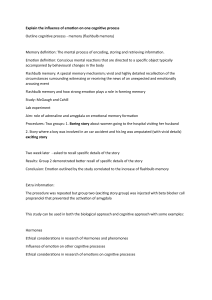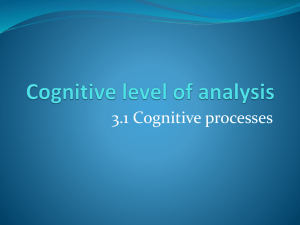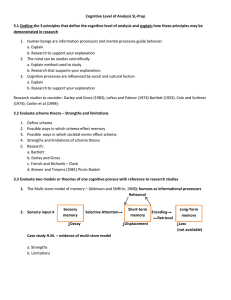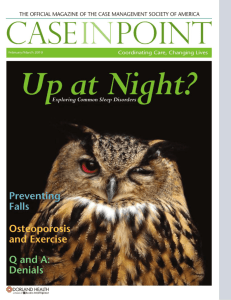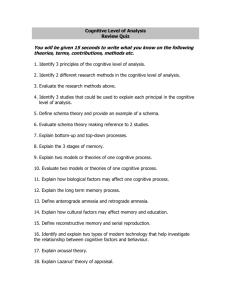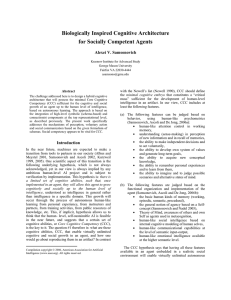File - Harding IB psych
advertisement
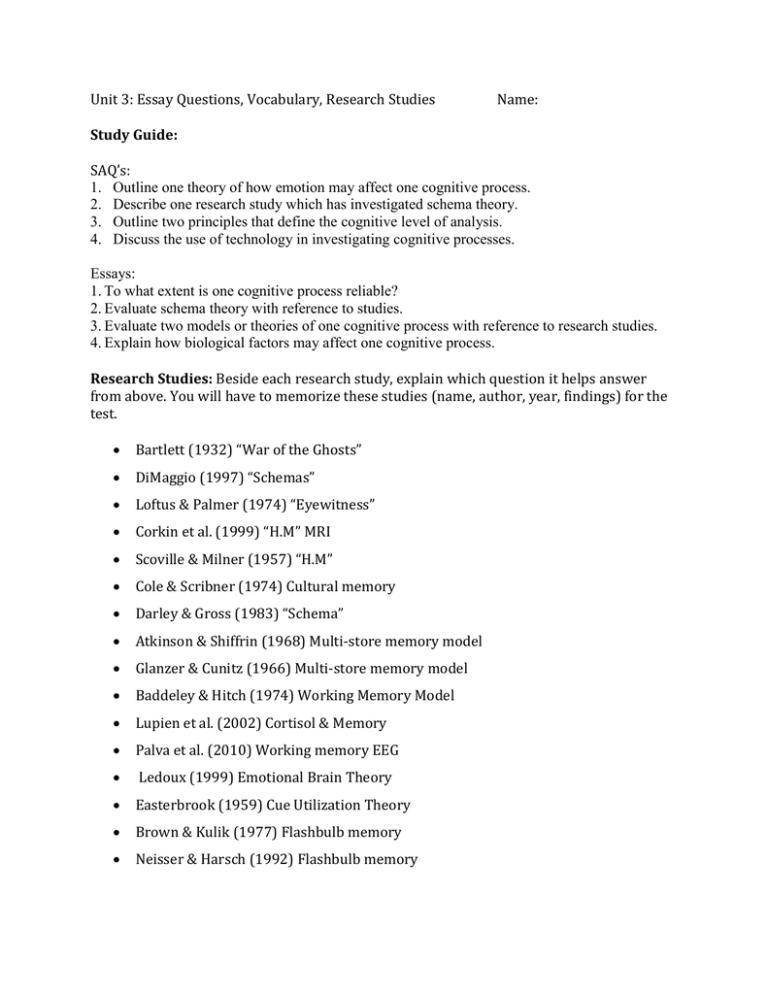
Unit 3: Essay Questions, Vocabulary, Research Studies Name: Study Guide: SAQ’s: 1. Outline one theory of how emotion may affect one cognitive process. 2. Describe one research study which has investigated schema theory. 3. Outline two principles that define the cognitive level of analysis. 4. Discuss the use of technology in investigating cognitive processes. Essays: 1. To what extent is one cognitive process reliable? 2. Evaluate schema theory with reference to studies. 3. Evaluate two models or theories of one cognitive process with reference to research studies. 4. Explain how biological factors may affect one cognitive process. Research Studies: Beside each research study, explain which question it helps answer from above. You will have to memorize these studies (name, author, year, findings) for the test. Bartlett (1932) “War of the Ghosts” DiMaggio (1997) “Schemas” Loftus & Palmer (1974) “Eyewitness” Corkin et al. (1999) “H.M” MRI Scoville & Milner (1957) “H.M” Cole & Scribner (1974) Cultural memory Darley & Gross (1983) “Schema” Atkinson & Shiffrin (1968) Multi-store memory model Glanzer & Cunitz (1966) Multi-store memory model Baddeley & Hitch (1974) Working Memory Model Lupien et al. (2002) Cortisol & Memory Palva et al. (2010) Working memory EEG Ledoux (1999) Emotional Brain Theory Easterbrook (1959) Cue Utilization Theory Brown & Kulik (1977) Flashbulb memory Neisser & Harsch (1992) Flashbulb memory Vocabulary: (use book to find definitions) 1. Cognitive psychology 2. Cognitive neuroscience 3. Cognition 4. Mental representation 5. Bottom-up processing 6. Top-down processing 7. Stereotyping 8. Reconstructive memory 9. False memories 10. Perception 11. Schema 12. Distortion 13. Cognitive schema 14. Schema theory 15. Memory processes: encoding, storage, retrieval 16. Multi-store model 17. Attention, coding, rehearsal 18. Sensory memory 19. Modality specific 20. Short term memory & long term memory 21. Working memory 22. Central Executive & Slave Systems 23. Attentional control 24. Automatic level 25. Supervisory attentional level 26. Articulatory control system 27. Phonological store 28. Dual-task techniques 29. Multi-tasking 30. Working Memory Test Battery for Children 31. Neural networks 32. Lesioning 33. Explicit memory 34. Semantic memory 35. Episodic memory 36. Implicit memory 37. Procedural memory 38. Emotional memory 39. Hippocampus 40. Amygdala 41. Chunking 42. Narrative 43. Repression 44. Serial production 45. Emotion: Physiological changes, subjective feeling, associated behavior 46. Fight or flight 47. Problem-focused vs. emotion-focused coping 48. Flashbulb memory 49. Social comparison theory 50. Level of aspiration theory 51. Upward comparison 52. Illusory correlation 53. Gross national happiness 54. Meta-analysis 55. Positive psychology 56. Habituation 57. Set-point of happiness Concept cards have: Word Your Definition Use in a sentence Symbol

